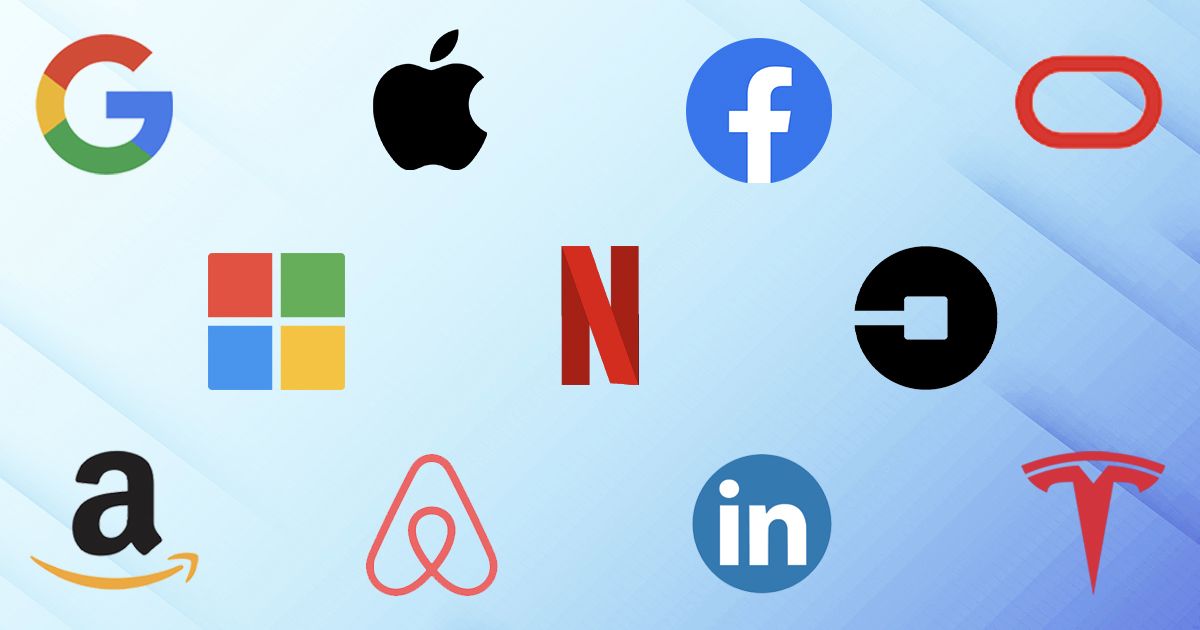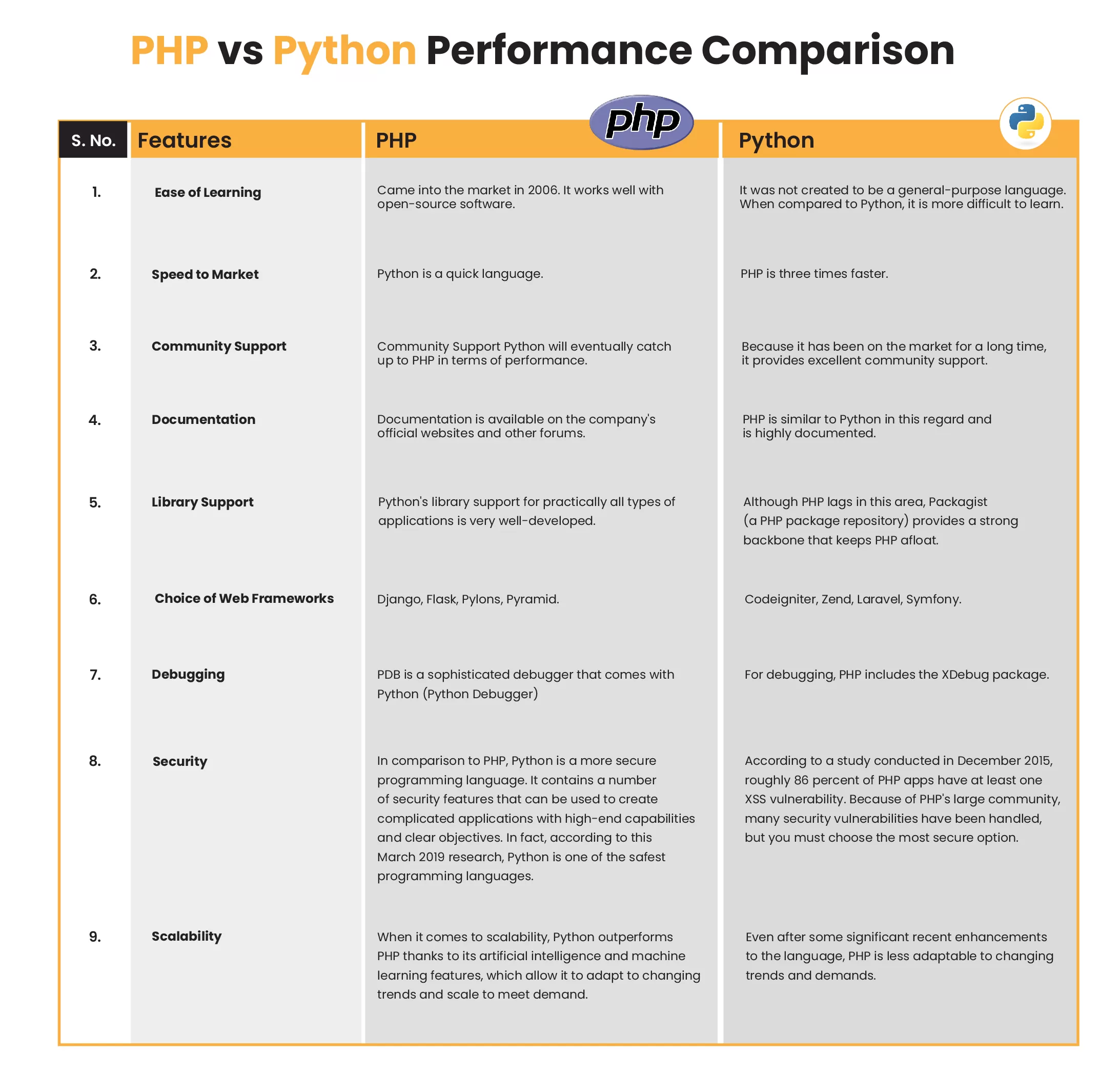Introduction
Coding has become an essential skill in today’s digital world, opening up numerous opportunities for those seeking a rewarding career. Whether you’re a beginner or have some coding experience, landing a job in the coding field requires certain strategies and skills. This article will guide you through the process of getting a job in coding, from finding the right coding language to preparing for job interviews and negotiating job offers.
The first step in starting your journey to a coding job is identifying your coding language of interest. With a wide range of programming languages available, choosing one can be overwhelming. Consider your interests, career goals, and the demand for certain languages in the job market. Popular coding languages like Python, Java, and JavaScript offer great opportunities, but your preference may vary based on the type of projects you want to work on.
Once you’ve chosen your coding language, it’s crucial to build and refine your coding skills. This involves practicing regularly, taking online courses, or attending coding bootcamps to enhance your knowledge and proficiency. Building a strong foundation will not only make you a competent coder but also boost your confidence during job interviews.
Creating a coding portfolio is another crucial step in showcasing your skills to potential employers. A portfolio allows you to demonstrate your coding abilities by sharing projects you’ve completed, contributions to open-source projects, or personal coding projects you’ve developed. This tangible proof of your abilities can set you apart from other applicants and give employers a glimpse into your potential.
Preparing for job interviews is essential in the coding field. Alongside technical questions, coding interviews often include problem-solving exercises and algorithm challenges. Practicing coding puzzles, participating in coding competitions, and honing your problem-solving skills will help you excel in these interviews. Additionally, polishing your communication and presentation skills will make you a more well-rounded candidate.
Finding Your Coding Language
When considering a career in coding, one of the first decisions you need to make is selecting the coding language you want to specialize in. The coding language you choose will heavily depend on your career goals, interests, and the demand in the job market. Here are some tips to help you find the right coding language for you.
1. Assess Your Interests: Think about what aspects of technology and coding interest you the most. Are you more inclined towards web development, mobile app development, data analysis, or artificial intelligence? Identifying your passions and interests will help you narrow down the coding languages that align with your career aspirations.
2. Consider the Market Demand: Research the current demand for different coding languages in the job market. Look for trends and pay attention to languages that are in high demand or have a growing market. For example, Python is widely used in data science, while Java is popular for building enterprise-level applications. Understanding the market demand can increase your chances of finding job opportunities in your chosen coding language.
3. Evaluate the Learning Curve: Each coding language comes with its own learning curve. Some languages may be more beginner-friendly, while others may have steeper learning curves. Consider your learning style and how quickly you want to enter the job market. Languages like Python and JavaScript are known for their ease of use and readability, making them popular choices for beginners.
4. Explore Resources: Look for online resources, tutorials, and coding communities that offer support and learning materials for the coding languages you are interested in. Having a strong community can greatly enhance your learning experience and provide opportunities for collaboration and networking.
5. Try It Out: Experiment with different coding languages by completing small projects or tutorials. Getting hands-on experience will help you understand the syntax, structure, and logic of each language. This practical experience will give you a clearer idea of which language feels the most comfortable and enjoyable to work with.
Remember, the coding language you choose is not set in stone. As you gain experience and explore different projects, you may find yourself learning and working with multiple languages. It’s always beneficial to have a versatile skill set in today’s ever-evolving tech industry.
Building Your Coding Skills
Once you have selected your coding language, the next step is to focus on building and improving your coding skills. Developing a strong foundation in coding is crucial for your success in the field. Here are some strategies to help you enhance your coding skills.
1. Practice Regularly: Consistency is key when it comes to coding. Set aside dedicated time each day or week to practice coding. This regular practice will help you reinforce concepts, improve your problem-solving abilities, and become more efficient in writing code.
2. Take Online Courses or Attend Coding Bootcamps: Online platforms such as Udemy, Coursera, and Codecademy offer a wide range of coding courses taught by industry professionals. These courses provide structured learning experiences that cover various coding concepts and help you stay updated with the latest technologies and trends.
3. Participate in Coding Challenges and Competitions: Engaging in coding challenges and competitions can push you beyond your comfort zone and help you grow as a coder. Websites like LeetCode and HackerRank provide a platform where you can solve coding problems and compare your solutions with others. The competitive environment can improve your problem-solving skills and expose you to different coding techniques.
4. Contribute to Open-Source Projects: Open-source projects offer an excellent opportunity to collaborate with experienced developers and contribute to real-world coding projects. By working on open-source projects, you can gain hands-on experience, learn from others, and showcase your skills to potential employers.
5. Build Your Own Projects: Take initiative and work on personal coding projects. Whether it’s a website, a mobile app, or a small utility tool, working on independent projects helps you apply your knowledge, practice different coding concepts, and demonstrate your abilities to prospective employers.
6. Stay Updated with Industry News and Trends: The coding field is continuously evolving, with new technologies and frameworks emerging regularly. Stay updated with the latest industry news and trends by following influential tech blogs, joining coding forums, and participating in online coding communities. This will enrich your knowledge and keep you ahead of the curve.
By focusing on consistent practice, continuous learning, and hands-on experience, you can steadily build your coding skills and become a proficient coder. Remember, coding is an ongoing journey, and the more you invest in honing your skills, the more opportunities and growth you will achieve.
Creating a Coding Portfolio
A coding portfolio is a vital tool in showcasing your skills, experience, and projects to potential employers. It provides a tangible representation of your coding abilities and serves as a valuable asset when applying for coding jobs. Here are some essential tips for creating an impressive coding portfolio.
1. Select Your Best Projects: Choose a selection of your best coding projects to showcase in your portfolio. Highlight projects that demonstrate your expertise in your chosen coding language, as well as projects that showcase your problem-solving abilities and creativity. It’s better to have a few high-quality projects than many mediocre ones.
2. Include a Variety of Projects: Aim to include a diverse range of projects that showcase different aspects of your coding skills. Include projects that cover different domains, such as web development, mobile app development, data analysis, or any other specific area of interest. This demonstrates your versatility and adaptability as a coder.
3. Provide Project Descriptions: For each project, provide a brief description that explains the purpose, functionality, and technologies used. Highlight any special challenges you faced during the development process and how you overcame them. This gives employers insights into your problem-solving abilities and your approach to coding projects.
4. Showcase Your Contributions: If you have contributed to open-source projects or collaborated with others, make sure to include those in your portfolio. Mention the specific features or improvements you worked on and provide links to the project’s repository. Showing your involvement in collaborative projects demonstrates your ability to work in a team and contributes to your credibility as a coder.
5. Include Code Samples and Documentation: Along with project descriptions, consider including snippets of your code to demonstrate your coding style and skills. This can be particularly useful for showcasing your clean code practices and efficient problem-solving approaches. Additionally, provide documentation or README files that explain the project setup, functionalities, and installation instructions for potential employers or collaborators.
6. Update and Polish Regularly: Keep your coding portfolio updated with your latest and most relevant projects. As you gain more experience or complete new projects, revisit and refine your portfolio to reflect your growth as a coder. Regularly updating your portfolio not only keeps it relevant but also allows you to continuously showcase your latest achievements and skills.
Remember, your coding portfolio should be visually appealing and easy to navigate. Consider using a clean and organized layout that puts the focus on your projects. Providing a link to your portfolio in your resume or job applications will give potential employers the opportunity to explore your work and gain a deeper understanding of your coding abilities.
Preparing for Job Interviews
Preparing for job interviews in the coding field requires a combination of technical knowledge, problem-solving skills, and effective communication. To increase your chances of success, it’s important to be well-prepared and confident. Here are some key steps to help you prepare for coding job interviews.
1. Refresh Your Coding Skills: Review the coding language you’ll be using during the interview. Brush up on the syntax, common algorithms, and data structures. Solve coding challenges and practice coding problems to enhance your problem-solving abilities. Familiarize yourself with commonly-used libraries, frameworks, and tools related to your chosen coding language.
2. Practice Whiteboard Coding: Many coding interviews involve whiteboard coding, where you’re required to write code on a whiteboard or a shared document. Practice solving coding problems without the aid of an Integrated Development Environment (IDE). Focus on explaining your thought process, writing clean code, and optimizing for time and space complexity.
3. Research the Company: Gain a comprehensive understanding of the company you’re interviewing with. Study their mission, values, products or services, and any recent news. This knowledge will allow you to showcase your genuine interest in the company during the interview and align your answers with their goals.
4. Prepare for Technical Questions: Brush up on technical concepts and be prepared to answer coding-related questions. Understand common algorithms, data structures, and design patterns. Practice answering technical questions and explaining your solutions clearly. You may also face questions related to specific technologies or frameworks, so be ready to demonstrate your knowledge in those areas.
5. Improve Problem-solving Skills: Coding interviews often include problem-solving exercises and algorithmic challenges. Practice solving coding puzzles and algorithms to improve your problem-solving skills. Focus on understanding the problem, breaking it down into smaller parts, and developing a logical solution.
6. Enhance Communication and Soft Skills: Effective communication is essential during coding interviews. Practice explaining your solutions clearly and concisely. Pay attention to your body language, maintain eye contact, and actively listen to the interviewer. Moreover, develop your soft skills such as teamwork, adaptability, and problem-solving mindset, as these are highly valued by employers.
7. Mock Interviews and Feedback: Seek out mock interviews or coding practice sessions with friends, coding communities, or mentors. This will simulate the interview experience and provide valuable feedback and insights to identify areas for improvement. Consider recording your mock interviews to observe your body language and communication style.
By investing time in preparation and practice, you can feel more confident and ready to tackle coding job interviews. Remember to showcase your coding skills, problem-solving abilities, and cultural fit with the company throughout the interview process. With proper preparations and a positive mindset, you’ll increase your chances of succeeding in your coding job interviews.
Job Search Strategies
Searching for a coding job can be an exciting but challenging process. To maximize your chances of finding the right job, it’s important to have a well-structured job search strategy in place. Here are some effective strategies to help you navigate the job search process in the coding field.
1. Define Your Job Preferences: Start by identifying your job preferences, including location, company size, industry, and role. Determine whether you prefer working in large corporations, startups, or remote positions. Having a clear understanding of your job preferences will help you narrow down your search and target the right opportunities.
2. Build Your Network: Networking is an essential part of job searching in any field. Connect with professionals in the coding industry through social media platforms like LinkedIn, attend coding meetups or conferences, and join coding communities. Engaging with others in the field can provide valuable insights, job leads, and potential referrals.
3. Utilize Job Search Platforms: Make use of online job search platforms that are specific to the coding field, such as Indeed, Dice, or Stack Overflow Jobs. These platforms often have a wide range of coding job listings, allowing you to filter by location, experience level, and coding language. Set up job alerts to receive notifications about relevant job openings.
4. Leverage Company Websites: Visit the websites of companies that you’re interested in working for. Many companies have dedicated careers pages where they list their job openings. Additionally, some companies may not advertise on job search platforms, so checking their websites directly can give you a competitive edge.
5. Customize Your Resume and Cover Letter: Tailor your resume and cover letter to highlight relevant coding skills, projects, and experiences for each job application. Emphasize your technical skills and the impact you’ve made in previous coding roles. Use keywords from the job description to demonstrate your fit for the position and optimize your chances of catching the hiring manager’s attention.
6. Build an Online Presence: Create an online presence through platforms like GitHub or personal coding blogs. Share your coding projects, contributions to open-source projects, and insights on coding topics. Having a strong online presence can attract attention from potential employers and help showcase your expertise and commitment to coding.
7. Attend Job Fairs and Coding Events: Job fairs and coding events provide opportunities to meet recruiters and hiring managers face-to-face. These events often have companies looking to hire talented coders. Make sure to bring copies of your resume, prepare your elevator pitch, and be ready to discuss your skills and experiences on the spot.
Remember, the job search process can take time and patience. Stay motivated, maintain a positive attitude, and continue to seek learning opportunities to enhance your skills. Finding the right coding job requires a combination of proactive actions and persistence in pursuing your goals.
Networking in the Coding Community
Networking within the coding community can significantly enhance your career prospects and open up new opportunities. Engaging with other coders, industry professionals, and coding communities can provide valuable insights, support, and potential job leads. Here are some effective strategies to network within the coding community.
1. Join Coding Communities and Forums: Participate in coding communities and forums, such as GitHub, Stack Overflow, or Reddit. Contribute to discussions, share your knowledge, and seek help when needed. Engaging with other coders will not only expand your network but also help you learn from different perspectives and gain insights from seasoned professionals.
2. Attend Coding Meetups and Conferences: Look for local coding meetups and conferences in your area. Attend these events to connect with fellow coders, industry leaders, and potential employers. Take advantage of the networking opportunities available at these events by initiating conversations, sharing your experiences, and exchanging contact information. Building relationships in person can often leave a lasting impression.
3. Connect on Social Media: Utilize social media platforms like LinkedIn, Twitter, and professional coding groups on Facebook to connect with like-minded individuals and industry professionals. Join coding-related discussions, share your insights and experiences, and build relationships with others in the field. Engaging with coding communities online can provide networking opportunities that transcend geographical boundaries.
4. Mentorship Programs: Consider joining mentorship programs within the coding community. Mentors can provide guidance, support, and industry insights that are invaluable for career growth. Seek out experienced mentors who can help you navigate the coding field, offer advice on job opportunities, and assist in honing your skills.
5. Collaborate on Coding Projects: Collaborating with other coders on coding projects can help you build connections and strengthen your network. Contribute to open-source projects, pair-programming sessions, or coding bootcamp group projects. Working with others not only enhances your technical skills but also showcases your ability to collaborate and communicate effectively in a team environment.
6. Engage in Online Coding Challenges: Participate in online coding challenges and competitions to connect with other talented coders. Platforms like LeetCode, HackerRank, and CodeWars offer coding challenges and leaderboards where you can engage with the coding community, learn from others’ solutions, and even showcase your problem-solving skills to potential employers.
7. Offer Assistance and Share Knowledge: Be an active member of the coding community by offering assistance and sharing your knowledge. Answer coding questions on forums, participate in coding discussions, and contribute tutorials or coding resources. By being helpful and generous with your knowledge, others in the coding community will recognize your expertise and be more willing to connect and collaborate with you.
Remember, effective networking is based on building genuine relationships and providing mutual support. Engage with the coding community, share your experiences, and create meaningful connections. By fostering relationships within the coding community, you’ll not only expand your network but also enhance your professional growth and open doors to exciting opportunities in your coding career.
Applying for Coding Jobs
When it comes to applying for coding jobs, it’s important to approach the process strategically and professionally. Each job application presents an opportunity to showcase your skills and stand out from the competition. Here are some tips to help you effectively apply for coding jobs.
1. Tailor Your Resume and Cover Letter: Customize your resume and cover letter for each job application. Highlight relevant coding skills, experiences, and projects that align with the job requirements. Use keywords from the job description to demonstrate your fit for the position and capture the attention of hiring managers.
2. Showcased Your Coding Projects: Include a section in your resume or portfolio that highlights your coding projects. Provide links to your GitHub repository, personal website, or online portfolio where employers can explore your projects in detail. Demonstrate the value you’ve brought to previous coding projects and highlight any notable achievements or contributions.
3. Showcase Your Technical Skills: Emphasize your technical skills in your resume and cover letter. List coding languages, frameworks, and tools that you are proficient in. Include relevant certifications, online courses, or coding bootcamp experiences to demonstrate your commitment to learning and acquiring new skills.
4. Demonstrate Problem-solving Abilities: Coding jobs often require strong problem-solving skills. Highlight your ability to analyze complex problems, devise effective solutions, and explain your problem-solving process. Showcase any coding challenges, algorithmic problems, or real-world projects where you had to employ your problem-solving abilities.
5. Provide References and Recommendations: Include references or recommendations from previous employers, coding mentors, or professors who can vouch for your coding skills and work ethic. These testimonials add credibility to your application and provide insight into your professional character.
6. Research the Company: Before submitting your application, conduct thorough research on the company. Understand their mission, values, and culture. Tailor your application to align with their specific requirements and demonstrate why you are a good fit for their organization.
7. Follow Application Instructions: Pay close attention to the application instructions provided by the company. Submit all required documents and ensure they are formatted correctly. Failure to follow instructions may result in your application being overlooked.
8. Follow Up: After submitting your application, follow up with a thank-you email to express your appreciation for the opportunity and reiterate your interest in the position. This can leave a positive impression and remind the hiring manager of your candidacy.
Remember, the coding job application process can be competitive, but with careful preparation and attention to detail, you can increase your chances of securing an interview. Highlight your coding skills, showcase your projects, and demonstrate your enthusiasm for the role. By presenting yourself professionally and effectively, you’ll be on your way to landing the coding job you desire.
Interviewing for Coding Jobs
Interviewing for coding jobs involves showcasing your technical skills, problem-solving abilities, and fit within the company’s culture. It’s essential to prepare thoroughly and approach the interview with confidence. Here are some key considerations to help you navigate coding job interviews.
1. Technical Preparation: Brush up on the coding language and technologies relevant to the job. Review fundamental concepts, algorithms, data structures, and design patterns. Be prepared to answer technical questions and solve coding problems. Practice coding challenges and whiteboard exercises to improve your problem-solving skills.
2. Mock Interviews: Conduct practice interviews with friends or experienced coders. Simulate the interview scenario and gather feedback on your performance. Practicing mock interviews helps refine your answers, reduces anxiety, and enhances your interview performance.
3. Portfolio Review: Prepare to discuss your coding projects and contributions in detail. Be ready to explain the technologies used, challenges faced, solutions implemented, and the impact of your work. Demonstrate your thought process, decision-making, and problem-solving abilities during project discussions.
4. Research the Company: Learn about the company before your interview. Understand their mission, products, services, and recent achievements. Research their technical stack, tools, and development processes if available. Demonstrating your knowledge and genuine interest in the company will impress the interviewer.
5. Behavioral Questions: Coding job interviews often include behavioral questions to assess your soft skills. Prepare examples that highlight your teamwork, problem-solving, communication, and adaptability. Showcasing your ability to work in a team and overcome challenges effectively is critical.
6. Ask Questions: Prepare a list of questions to ask the interviewer about the job, company, team, or work culture. Asking thoughtful questions demonstrates your enthusiasm and interest in the role. It also helps you gain insight into whether the company is a good fit for you.
7. Clear Communication: Clearly articulate your thoughts and solutions during the interview. Structure your answers logically and concisely. Break down complex concepts into easily understandable explanations. Good communication skills are essential for effective collaboration in coding roles.
8. Problem-solving Approach: Demonstrate your problem-solving approach during technical questions. Prioritize understanding the problem, ask clarifying questions, and outline your thought process before jumping into writing code. Iterate through test cases, explain your reasoning, and optimize your solution if possible.
9. Cultural Fit: Highlight your adaptability and alignment with the company’s values and culture. Showcase your ability to work well in a team, communicate effectively, and continuously learn and grow. Cultural fit is an important factor in hiring decisions.
10. Follow-up: Send a personalized thank-you email to the interviewers within 24-48 hours of the interview. Express your gratitude for the opportunity and reiterate your interest in the position. This gesture leaves a positive impression and reinforces your enthusiasm for the role.
Remember, preparing thoroughly, demonstrating your technical competence, problem-solving abilities, and interpersonal skills, will greatly increase your chances of success in coding job interviews. Stay calm, focus on your strengths, and showcase your passion for coding and the field.
Negotiating Job Offers
Receiving a job offer is an exciting milestone in your coding career. However, before accepting, it’s important to evaluate the offer and negotiate for the best possible terms. Negotiating a job offer can help ensure you’re adequately compensated for your skills and experience. Here are some key considerations when negotiating a coding job offer.
1. Evaluate the Offer: Carefully review the offer letter, considering factors such as salary, benefits, stock options, and potential bonuses. Assess if the offer aligns with industry standards and your expectations. Research salary ranges for similar positions to have a basis for negotiation.
2. Prioritize Your Needs: Identify your priorities and what matters most to you. It could be salary, work-life balance, professional development opportunities, or other factors. This will help you articulate your needs during negotiations and focus on the areas that are most important to you.
3. Research Market Value: Research the market value of coding positions comparable to the offered role. Gain insights into salary ranges, benefits, and other compensations offered in the industry. Conveying your knowledge of market trends and industry standards strengthens your negotiating position.
4. Highlight Your Value: Emphasize the unique value you bring to the organization. Discuss your technical skills, projects, and experiences that make you an asset to the company. Clearly communicate how your skills and accomplishments contribute to the company’s goals and objectives.
5. Be Prepared to Negotiate: Enter negotiations with a collaborative mindset. Be respectful and professional while advocating for your interests. Clearly articulate your reasoning behind counteroffers and focus on finding win-win solutions that benefit both parties.
6. Communicate Your Expectations: Clearly express your expectations regarding salary, benefits, or other terms you want to negotiate. Justify your requests based on your skills, experience, and market value. Consider framing your requests in terms of how they will contribute to your productivity and commitment to the company.
7. Consider the Whole Package: Negotiation isn’t just about salary; it’s also about other aspects of the job offer. Evaluate the benefits, such as health insurance, retirement plans, vacation time, and professional development opportunities. Consider the whole package and negotiate for improvements in these areas as well.
8. Be Open to Flexibility: Negotiations require flexibility and compromise from both sides. Be open to alternative solutions that could meet your needs while also considering the company’s constraints. Remember that negotiation is a discussion aimed at finding a mutually beneficial agreement.
9. Get the Offer in Writing: Once you reach an agreement, ensure that the final terms are documented in writing, preferably in an updated offer letter or employment contract. This helps avoid any misunderstandings or miscommunications in the future.
10. Consider Seeking Professional Advice: If negotiations become complex or if you feel unsure about your approach, consider seeking advice from a career counselor or professional negotiator. They can provide guidance and help you navigate the negotiation process effectively.
Remember, negotiation is a normal part of the job offer process. Approach negotiations professionally, communicate your value, and focus on finding a mutually beneficial agreement. Effective negotiation can lead to better compensation, improved benefits, and an overall positive start to your new coding job.
Conclusion
Obtaining a job in coding requires a combination of technical skills, strategic planning, and effective communication. By following the steps outlined in this article, you can increase your chances of achieving success in your coding career.
Start by carefully selecting the coding language that aligns with your interests and career goals. Build a strong foundation through regular practice, online courses, and coding projects. Create a coding portfolio that showcases your skills and projects to impress potential employers.
When applying for coding jobs, tailor your resume and cover letter to highlight your relevant skills. Utilize job search platforms, company websites, and networking to find job opportunities. Prepare for job interviews by reviewing technical concepts, practicing problem-solving exercises, and researching the company.
Networking within the coding community can pave the way for new opportunities. Engage with coding communities, attend meetups and conferences, collaborate on projects, and offer assistance to others in the field. Building relationships and connections can lead to job referrals and insights into coding trends.
When negotiating a job offer, evaluate the terms and negotiate based on market value and personal priorities. Highlight your unique value and demonstrate how your skills can contribute to the company’s success. Remain flexible and open to alternative solutions during negotiations.
In conclusion, landing a job in coding requires dedication, continuous learning, and effective communication. By strategically applying these principles, you can enhance your chances of securing a fulfilling coding job. Keep refining your skills, stay up to date with industry trends, and embrace networking opportunities. With persistence and a passion for coding, you can embark on a rewarding career journey in this rapidly evolving field.

























